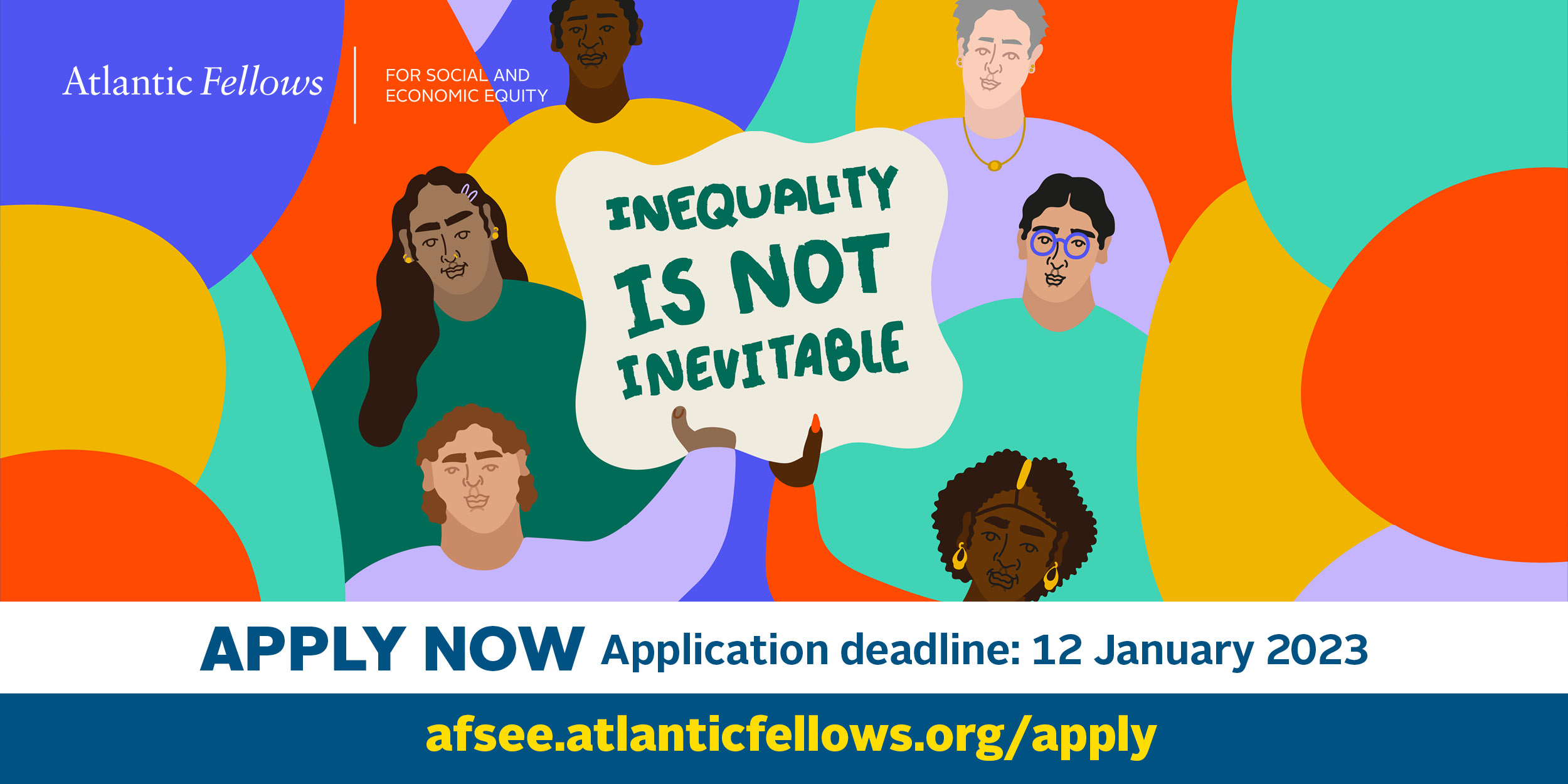Deadline: January 12, 2023
Are you a change-maker committed to fighting inequality? Do you want to learn from scholars, innovators, activists and social change organisations, and the latest academic research and expert insights on inequalities? Are you ready to join forces with a lifelong community of people who are working to build a fairer world?
Atlantic Fellows for Social and Economic Equity, based at LSE’s International Inequalities Institute, is an innovative fully-funded fellowship that brings together policymakers, activists, practitioners, artists, and researchers from around the world to explore and challenge the root causes of inequality. The programme is aimed at mid-career social change leaders, from diverse countries and contexts, who are working to challenge inequality and who believe inequality can be defeated.
Programme Details
The Atlantic Fellows for Social and Economic Equity programme (AFSEE) has two different tracks: Residential and Non-Residential. Fellows on the Residential track undertake the MSc in Inequalities and Social Science degree at LSE and participate in the programme’s bespoke modules over the course of the year. Members of the Non-Residential track, who remain in their home countries and work contexts during the active fellowship year, undertake practice-based project work and travel to join their Residential counterparts on the fellowship modules.
After completing the active fellowship year, Fellows from both tracks join a lifelong fellowship community made up of members of all seven Atlantic Fellows programmes worldwide, and receive ongoing support to learn, connect and collaborate.
Benefits (Support and Funding)
Residential Fellows
- The Residential track of the programme includes full tuition fees for the MSc in Inequalities and Social Science at LSE, a £19,000 stipend to cover living costs while in London, any necessary travel expenses to in-person modules, and travel to and from London at the beginning and end of the active fellowship, including reimbursement of visa fees.
- Modest financial support is available for Fellows who have family care responsibilities. The programme also has a Resilience Fund to which Fellows can apply in the event of an emergency.
- Residential Fellows receive support from a dedicated LSE academic mentor, from the AFSEE Academic Lead through monthly meetings and regular check-ins, and via further opportunities for engagement offered throughout the year.
Non-Residential Fellows
- The Non-Residential Track of the programme includes up to a £10,000 grant to support Fellows’ project work, any necessary travel expenses to in-person modules, accommodation and related costs during Modules, and reimbursement of visa fees.
- Modest financial support is available for Fellows who have family care responsibilities. The programme also has a Resilience Fund to which Fellows can apply in the event of emergencies.
- Each Non-Residential Fellow receives support from a dedicated mentor who has been selected for expertise and experience in the Fellow’s area of focus.
Eligibility
Residential Fellows
- Applicants must have 7 to 10 years of experience of substantive real-world experience in challenging inequalities.
- Applicants must qualify for admission to the MSc in Inequalities and Social Science at LSE. These requirements include an undergraduate degree (equivalent to 2:1 degree or above) in any discipline. A background in social science and/or work experience in the social policy field are advantageous but not essential.
- Applicants must meet LSE’s standard English Language Requirement.
Non-Residential Fellows:
- Applicants must have 7 to 10 years of experience of substantive real-world experience in challenging inequalities.
- Applicants should have an undergraduate degree (equivalent to 2:2 or above) in any discipline. However, we aim to be inclusive and to encourage applications from non-traditional applicants and we are therefore open to applications from applicants who do not hold an undergraduate degree.
- Applicants must meet LSE’s standard English Language Requirement.
How to Apply
All applications to the Atlantic Fellows for Social and Economic Equity programme must be submitted online via LSE’s Graduate Admissions Portal. Applications are open from Friday 14 October 2022 until 5pm (UK time) on Thursday 12 January 2023.
Please note that all required supporting documents must be submitted with your application, which is why it is recommended that you begin the application process as early as possible.
For more information, visit Atlantic Fellows.

